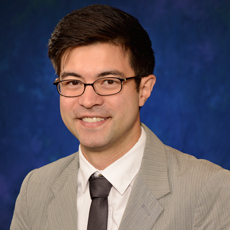
It’s no secret that aging Americans increasingly are attracted to assisted living, but recent developments in this country and others suggest they also have a growing interest in assisted dying. Long-term care providers should take note.
In New Jersey, a controversial assisted suicide bill recently passed out of committee and was scheduled to be considered by the whole Assembly, but was pulled from the floor due to a lack of votes. Opponents of the measure — which would have allowed doctors to prescribe fatal doses of medication for those expected to die within six months — hailed this as a “stunning defeat.” But supporters say they are determined to bring the bill back up in September.
Those backing the measure have a powerful new ally: revered human rights crusader Desmond Tutu, retired Anglican Archbishop of South Africa and Nobel Peace Prize winner.
Witnessing the death of his friend Nelson Mandela helped confirm his position on assisted dying, Tutu explained Saturday in British newspaper The Observer.
“I revere the sanctity of life — but not at any cost,” Tutu wrote. He went on, “Yes, I think a lot of people would be upset if I said I wanted assisted dying. I would say I wouldn’t mind actually.”
Simply providing palliative care might not ensure people’s “autonomy and dignity” when they are facing prolonged suffering and have decided they would prefer to die, Tutu wrote. He name-checked the states of Oregon and Washington as places that already allow assisted dying and urged United Kingdom lawmakers to pass a hotly contested bill that is similar to the one tabled in New Jersey.
That potential law in the Garden State says that long-term care providers do not have to participate in assisted suicides. But with respected figures like Tutu and former Archbishop of Canterbury George Carey supporting assisted dying, and large-scale action underway in England, I think providers in this country should expect the debate to gain steam here. They might be wise to think more deeply about why people choose assisted suicide and how they undertake it, to inform their own caregiving principles.
Take the example of Sandra Bem, Ph.D., former director of the Women’s Studies program at Cornell University. Diagnosed with Alzheimer’s five years ago, Bem decided she would end her life near “the last conceivable moment that it was physically possible for her to commit suicide alone,” NPR reported last month.
The weekend prior to her following through with that plan, Bem’s family and friends gathered with her to celebrate her life. Her daughter Emily, opposed to her mother’s decision at the start of the event, said that it became “obvious” that this was “about as good as it gets for a human exit … surrounded by everyone who loved her.”
I’m not arguing that nursing homes and assisted living facilities should start offering deadly medication cocktails to residents, but they should assess how they measure up to this particular ideal way of exiting life.
Some facilities are not hitting it out of the park, according to recently published research findings. These facilities withhold information about a person’s passing from other residents, citing privacy law concerns. Also, structures and processes in continuing care retirement communities often unintentionally create isolation among different settings, cutting people off from the friends they’ve made and apparently limiting dying residents from being fully surrounded by loved ones.
These providers might now be able to focus on their beautiful furnishings and varied activities to get new assisted living residents to enter a community. But if moral authorities like Tutu continue to speak out for assisted dying, and if lawmakers continue to push the issue forward, long-term care operators should expect some tough questions and heightened expectations about how much control residents have over how — and when — they make their exits.
Tim Mullaney is McKnight’s Senior Staff Writer. Follow him @TimMullaneyLTC.




